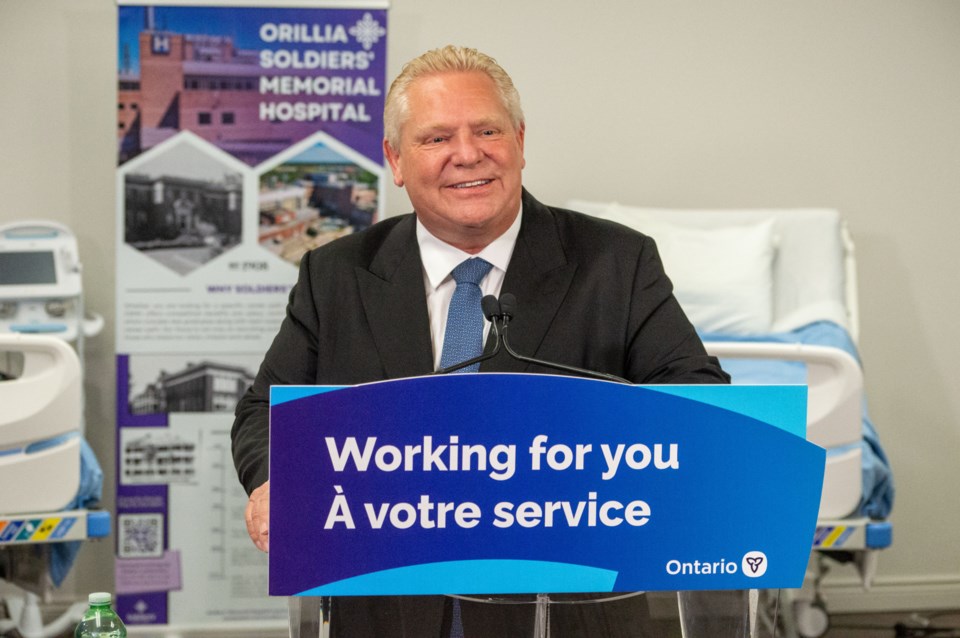BarrieToday welcomes letters to the editor at [email protected] or via the website. Please include your full name, daytime phone number and address (for verification of authorship, not publication).
It is very unfortunate that so many people in our society are struggling, and suffering — some on a daily basis — and they are not receiving the assistance or support that they should.
Mostly it is the low- and lower-income people that are and have been particularly disadvantaged just trying to survive in Ontario under the Ford Conservative government. This has been the situation for many years.
In my opinion, it would be very disastrous for low- and lower-income people if the Conservatives formed a government in the next federal election in Canada. Such as when the previous Stephen Harper Conservative government announced that in 2023 the age of eligibility for Old Age Security and Guaranteed Income Supplement would rise to 67 from 65. This would have been the biggest cut ever made to Canada’s modest public pension system, potentially pushing many thousands of seniors into poverty. It was cancelled by the Liberal government in 2016, before it went into effect.
But those planned cuts to OAS and GIS showed the Conservatives' real agenda — cutting effective social programs that the middle class and vulnerable Canadians depend so much upon.
The same has occurred in Ontario under the Doug Ford Conservative government; slashing programs on vulnerable people is a hallmark of the Ford government.
As far as the agreement between the federal Liberals and the New Democrats, they are currently working together to prevent an election through what is known as the Supply and Confidence Agreement which they reached after the 2021 election failed to produce a majority government for the Liberals. Although it went against the wishes of some NDP MPs, the NDP committed to supporting the Liberals on crucial confidence and budget and other money votes in exchange for progress on some key NDP issues until June 2025.
Until now, the arrangement they made has worked well enough to keep the Liberal – NDP deal together, which has proved to be a good thing for low lower income Canadians.
The most significant achievement under the Liberal-NDP deal has been a comprehensive dental insurance program. Cost for all dental care is now provided for seniors over 72, and over time, the age coverage requirement will be lowered until everyone is insured. However, the dental coverage has been facilitated, that is still not the case for the health care demand of the New Democrats; national pharmacare, or comprehensive insurance for everyone in Canada for prescription drugs.
The deadline for pharmacare legislation to be introduced was the end of 2023. However, an agreement was reached to extend the deadline to March 1, 2024. At this time it remains unclear if that deadline will be met. Whether a bill like that would be enough to appease the NDP remains to be seen. The NDP leader has talked of consequences if the NDP’s demands are not met, and the drastic consequences would be the termination of the Supply and Confidence Agreement.
The most drastic consequences would be an election that the Conservatives would win, and they have no interest in either a pharmacare plan or an expanded dental care plan.
In the minority government between 2019 and 2021, the NDP kept the Liberals in office because neither wanted an election. One was called only after the Liberals mistakenly thought they could win a majority. Until then, separate negotiations were conducted before each confidence vote to ensure the government survived.
If the NDP abandons their deal with the Liberals as a pre-election positioning move and Justin Trudeau does not call an election, they would likely revert to that arrangement.
The Conservatives would have a harder time labelling the Trudeau government a Liberal-NDP coalition, but nothing else would really change. And if that is what happens, there will be no federal election in 2024. It is my hope that the Liberal-NDP agreement survives until June 2025 as per their agreement as it would be disastrous if the Conservatives got elected especially for low income Canadians who would suffer greatly.
Doug Abernethy
Gravenhurst



